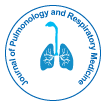开放获取期刊获得更多读者和引用
700 种期刊 和 15,000,000 名读者 每份期刊 获得 25,000 多名读者
抽象的
Portuguese Family Drug Education's Respiratory Drug Class: A Delphi Research
Abdullah Al-Shamrani
Background: Respiratory conditions (RD) constitute a significant part of the workload of family croakers. There's no agreement on what family croakers should know in this area but established styles for achieving agreement may help to overcome this.
Objects: The purpose of the study was to gain a public agreement on the needed knowledge and chops in respiratory drug for family drug trainees after vocational training.
Methods: A Delphi study was conducted via e-mail with a different panel of experts. We developed a Learning Curriculum Framework (LCF) with 399 particulars acclimated from the Royal Australasian College of Physicians — Respiratory Medicine Advanced Training Curriculum. The LCF was submitted to the experts in two rounds for agreement. Consensus was considered for particulars that had an agreement of 80 in the groups above 4 on a scale of significance that ranged from 1(not important) to 5(veritably important).
Results: Consensus was attained for 159 particulars (38.8). These included structure and function of the respiratory tract(0.6), presenting problems(21.4), opinion(7.5), interventions and forestalment(11.3), COPDemphysema( 12.6), tumours(3.1), infections(10.7), tuberculosis(5.7), HIV(1.3), thromboembolic complaint(2.5), pleural- pulmonary complaint(3.1), gestation(0.6) and sleep diseases(3.8). Particulars on iatrogenic conditions and respiratory exploration didn't reach agreement.
Conclusions: Consensus on the respiratory drug class may contribute to farther development of the vocational training class in Portugal. This approach may help preceptors in other countries in Europe to develop classes for respiratory drug and other areas of general practice.

 English
English  Spanish
Spanish  Russian
Russian  German
German  French
French  Japanese
Japanese  Portuguese
Portuguese  Hindi
Hindi